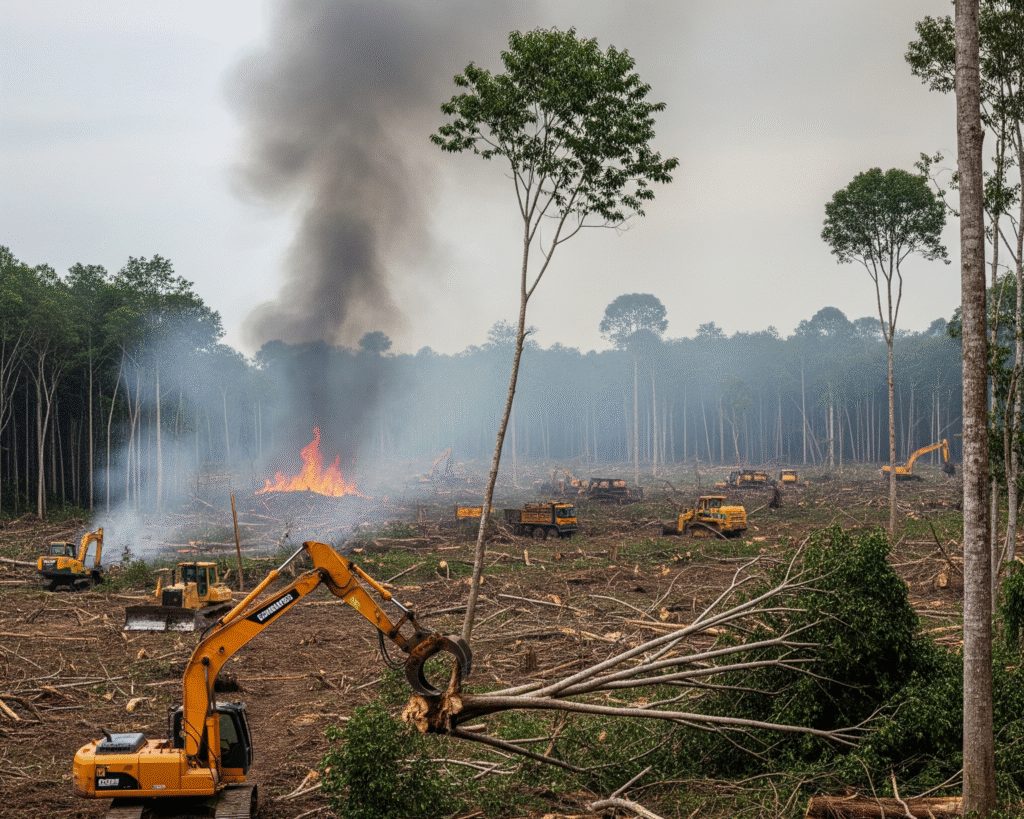Unit 11 – Local Environmental Issues
Warm-up and Vocabulary

Key Vocabulary
Environment and Nature
- Conservation: The protection of plants, animals, and natural areas.
- Habitat: The natural home or environment of an animal, plant, or other organism.
- Urban Green Space: Areas of grass, trees, or other vegetation set apart for recreational or aesthetic purposes in a city.
- Pollutant: A substance that makes water, air, etc., dirty and unsafe.
- Biodiversity: The variety of plant and animal life in a particular habitat.
- Sustainable: Using methods that do not harm the environment.
Waste and Community Action
- Waste Management: The collection, transport, and disposal of garbage and other waste products.
- Community Initiative: A program or project started by people in a local area to solve a problem.
Interactive Activity: My Local Environment
Reading Between the Lines: Making Inferences
Sometimes, an author does not state a fact directly. Instead, they give you clues so you can figure out the meaning for yourself. When you use these clues to reach a logical conclusion, you are making an inference.
An inference is an educated guess based on evidence. The formula is simple:
What the Text Says (Clues) + What I Already Know (My Knowledge) = Inference
Let’s look at an example.
Passage:
“When the park cleanup event was announced, only five people signed up. The event organizers looked at the empty sign-up sheet with disappointed faces. They decided to offer a free lunch and a t-shirt to anyone who volunteered.”
Inference Question: What can be inferred about the event organizers?
a. They are not very organized.
b. They believe the park is already clean.
c. They are worried that not enough people will come to the event.
How to Find the Answer:
- Clue 1 (Text): “only five people signed up.”
- Clue 2 (Text): They had “disappointed faces.”
- Clue 3 (Text): They started offering free things (lunch and a t-shirt).
- My Knowledge: People offer free things to encourage others to do something.
- Inference: The organizers are worried about low attendance and are trying to attract more volunteers. So, the correct answer is (c).
Tips for Success
Here are three tips to help you become a master inference-maker:
- Always Find Proof: A correct inference is supported by words and phrases in the text. Before you choose an answer, ask yourself, “Where is the evidence for this in the passage?”
- Use Logic, Not Imagination: An inference is a logical step, not a wild guess. It must be based on the information provided. Don’t add information or ideas that are not suggested by the text.
- Watch for “Imply” and “Suggest”: Inference questions on the TOEFL often use verbs like imply, suggest, or infer. When you see these words, you know the answer will not be stated directly in the passage.
Skill Practice
Read the short passage below and complete the exercises that follow.
Cikapundung River: An Environmental Challenge
The Cikapundung River, which flows through the heart of the city, was once a source of pride for residents. Old photographs show families enjoying picnics along its clean banks. Today, however, the river tells a different story. The water is dark and murky, and plastic bags and bottles are often caught along its edges. Most residents now avoid the river, and the city has posted signs warning against swimming. In response, a local group, "Friends of Cikapundung," has started organizing monthly cleanup events. They have already removed over 500 kilograms of trash, but they admit it's a difficult and ongoing battle.
A. Multiple-Choice Questions
B. Fill in the Blanks
C. Crossword Puzzle
D. Word Search